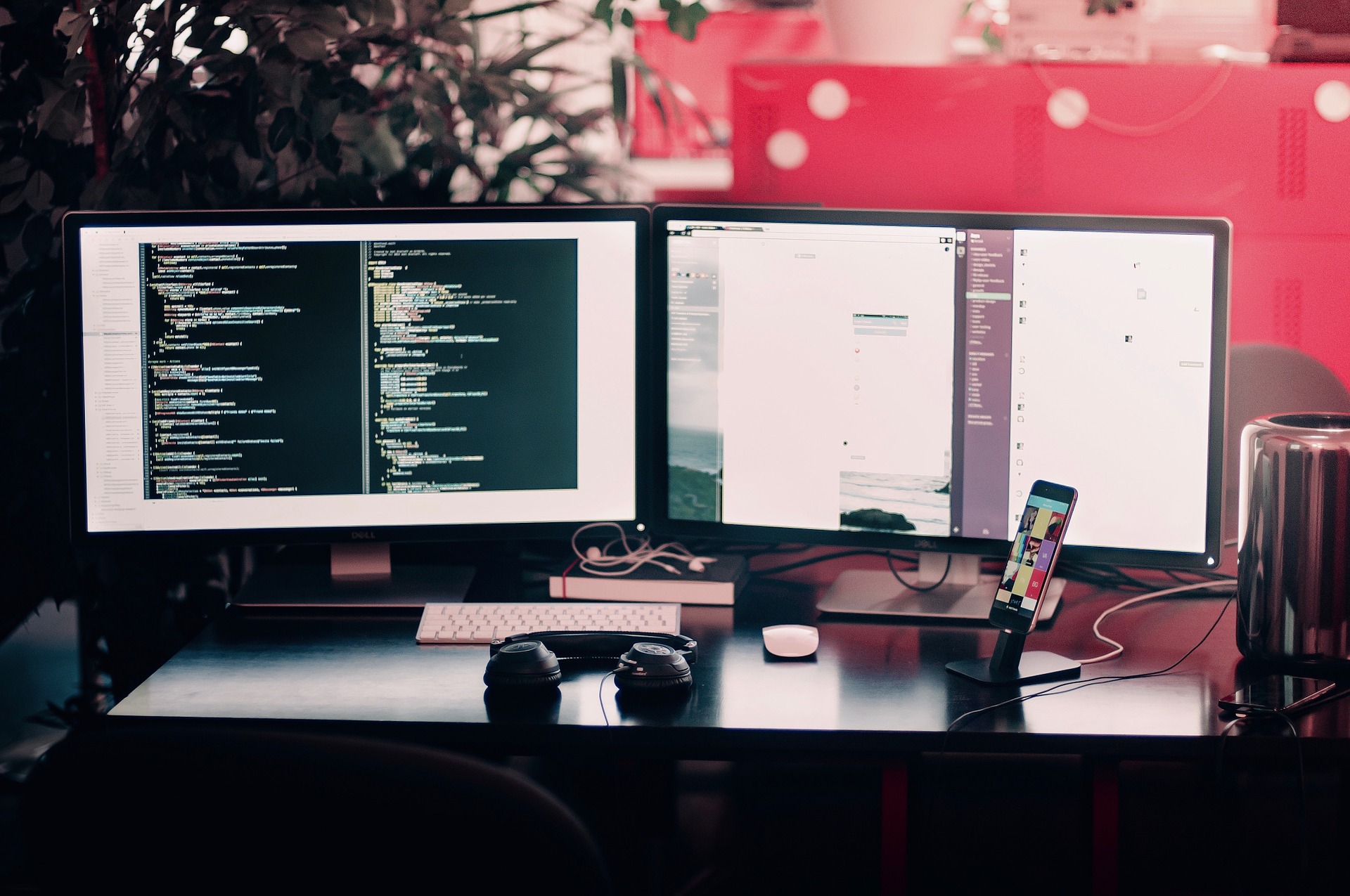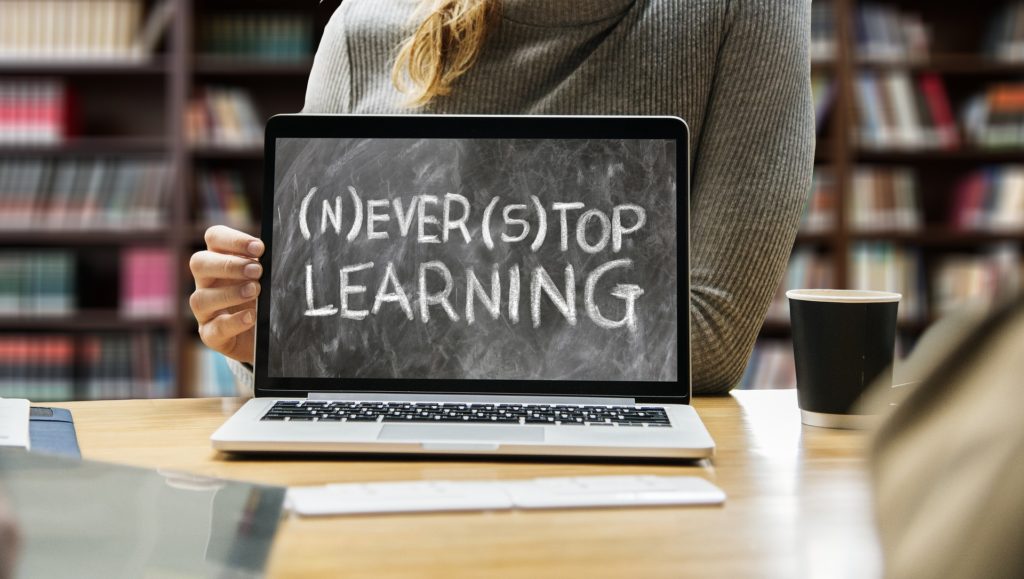How I became a Coder…

17th July 2021
So you’ve read my 5 Top Tips in Learning to Code But, wait you aren’t a coder yet?
Well. Don’t worry – lucky for you, I am. And, here’s the tasty bit. I’m going to tell you how I got into coding, what it is actually like & give you some tips to break into the industry if you’re just starting out… so buckle up, get comfy and let’s go.
How I started…
I started coding when I was 13. I got given this huge book on DreamWeaver by a friend, and was totally obsessed with it. At each stage of the book, they had a task to complete which put into practise what you’d just read. Before I knew it I’d built a (very basic) website.
I fell off the programming train as I fell into the world of being a teenager… but at 20 my passion resurfaced when I watched The Social Network. No, I’m not joking! It blew my mind the idea that Mark Zuckerberg could create anything he came up with. I saw what he had done in the film, I knew that Zuckerberg’s skills were programming, writing software and building applications…. and most importantly, I knew I had the same skills too. I was inspired.
I practically ran out of my room and straight to Waterstones – I bought 5 books on coding; HTML, CSS, PHP, Javascript & the web. It took me hardly any time to trawl through the PHP book, and as a test project after I’d completed the book, I built a website called MyFace (a mash-up of Myspace & Facebook) which included the ability to login, make an account and upload images.

I felt totally empowered. Filled with vision, and purpose with something to aim for after my listless years as a teenager. I was excited that the knowledge which had seemed so complex, so impossible to master, was actually not so bad. I realised coding made sense. It was logical. And, most importantly, I had a knack for it.
How did I progress from there?
I was in full-time work, running my family business and managing the three staff who worked for me. But, in every second of my spare time I was either coding, reading about coding, learning to code, watching videos about coding or doing courses on coding.
I approached a friend who had mentioned he wanted a website built but had no funding. I told him I could do it, and so we went into business together.
My strategy was to use online courses for a foundational understanding, to get a general grasp of what I could do. Then I’d research, watch videos and come up with an idea for a mini project where I could implement all of my learns.
I got to a stage where I was really confident in my ability. I had learnt so much myself, now it was time for some industry knowledge. I made the decision to give up the family business and applied for a part-time job at a local creative agency. I didn’t have a CV, but the interview was a task. I was asked to build a single web page and a small app to scan QR codes. I completed it easily. That was it, I got the job!
The rest is history – I met my business partner at that same agency. We went in on a business together. Now my day job is based around creating bespoke digital solutions from scratch for our clients. I’ve got a team of developers who work under me. I love it.
What is it like actually working in a digital agency?
I’m lucky. I work with a collective of young, excited creators. The agency I work for is made up of writers, photographers, marketeers, events organisers, designers, web developers, web designers and animators.
The key thing that connects us all (bar that we sit next to each other, in the same office…) is that each of us is looking for a solution. Looking for a solution in how to sell a product, how to design a brand that communicates the client’s message, how to throw an event that will go down in history, how to improve UX, how to use VR integrated with art. Whatever the big idea is, we’re all looking for the ‘How To’. This makes an awesome environment for me as a programmer to be able to get into my flow. Get fully obsessed with ‘the how’. Drop all my plans and fully immerse myself into the project. Code faster, cleaner and more optimised.
I should stress that there is no such thing as ‘normal working hours’ when you work in programming. Most of the time, by brain is still mulling over solutions and possible puzzle-breaking code in the middle of the night.
What is the biggest challenge with working in Coding?
Although I can write code as easily as I can speak, sometimes I don’t know what to write because I don’t know how to solve the problem at hand. A big challenge for me is when I get to this stage of the process… and until I have an idea of how to fix the problem, there is simply nothing to write. Brain blank.
A computer can only do what you instruct it to. Often more of my time is actually spent thinking, reading, researching rather than actually writing code. This is really irritating and often the part of the process which causes the most frustration, whether it be for clients, colleagues or just myself. You just don’t know when you’re going to encounter a problem which is going to make the job itself harder. Which makes it hard to estimate time needed on projects, or how long it’ll take to complete.
How can I break into the Coding industry?
This totally depends on what stage of your coding journey you are on. Ideally you want to work out what you want to build, research what languages can be used to build said thing, find a structured course to teach you, start a passion project that you can do at the same time. If you haven’t already, I’d suggest checking out my blog 5 Top Tips in Learning to Code.
Some of the best coders in the world are self-taught.
Once you can build, you can show your prospective employer what you can do! It’s likely they will test you… so do a good job and it’s likely they will hire you too! Remember that being a Coder is about what you can do – some of the best coders in the world are self-taught. So having an impressive CV of study means very little unless you can actually apply what you’ve been taught.
Hopefully, this blog has highlighted that you don’t have to go to the very best school to be a top-of-the-class programmer. If you’re passionate, there is no reason that you can’t teach yourself how to code. You just have to have the drive and commitment to get there. Feeling a bit inspired?
Happy Coding.
Your friend,
